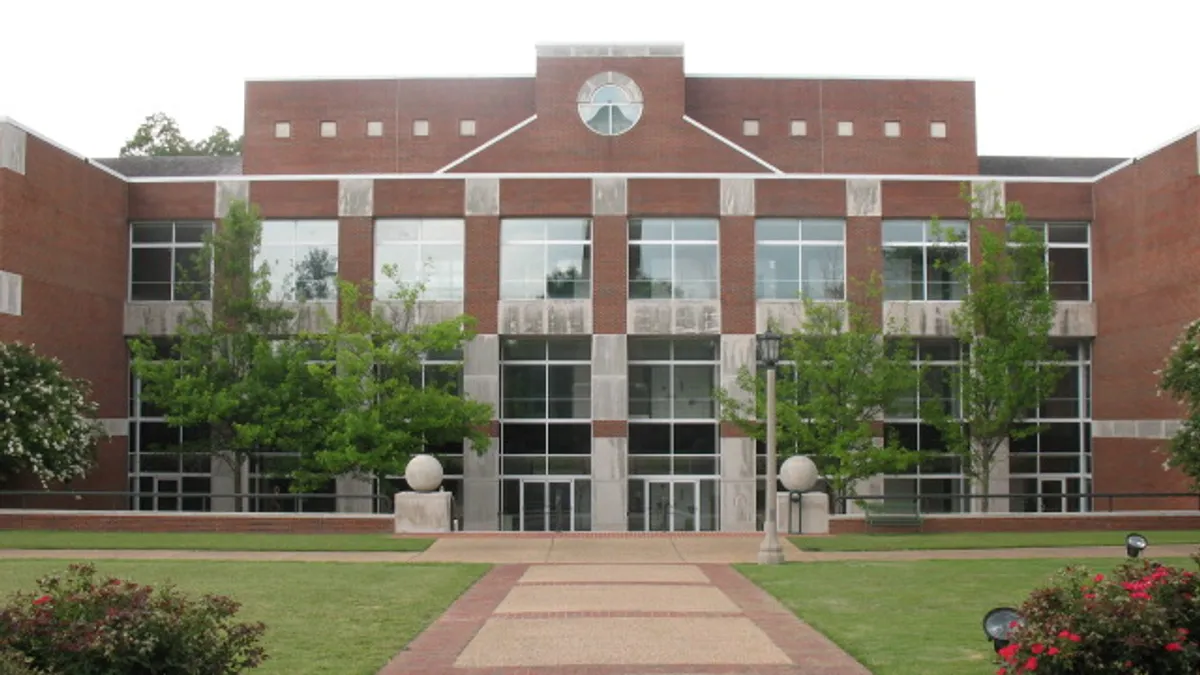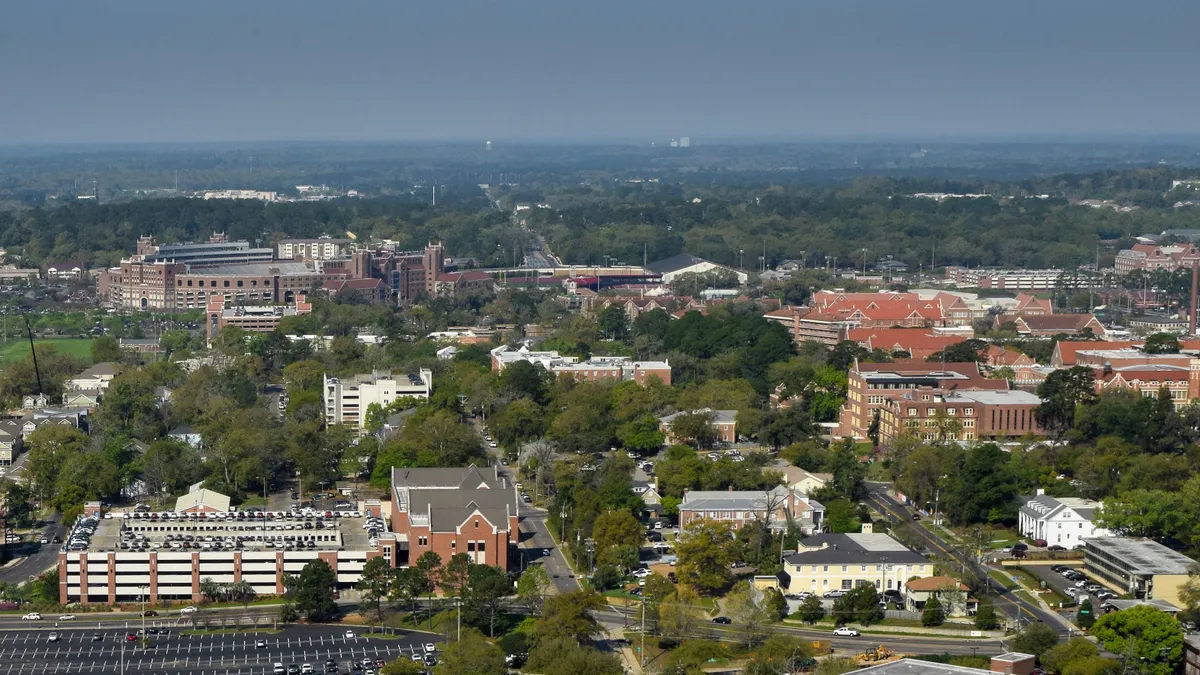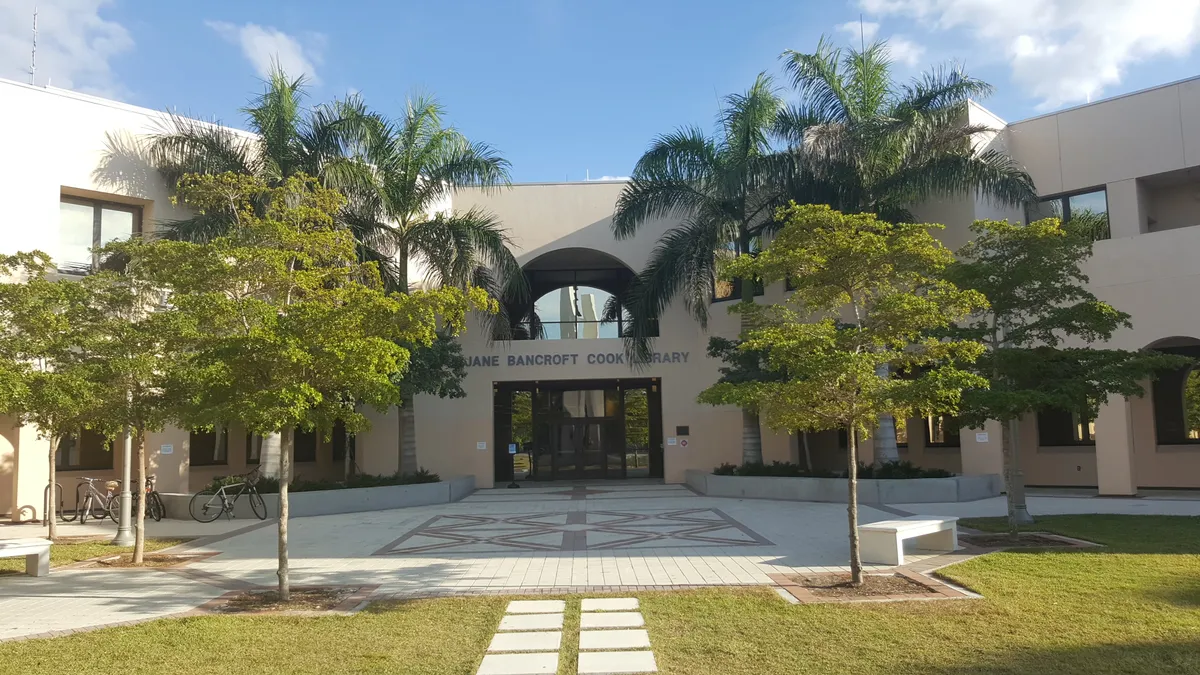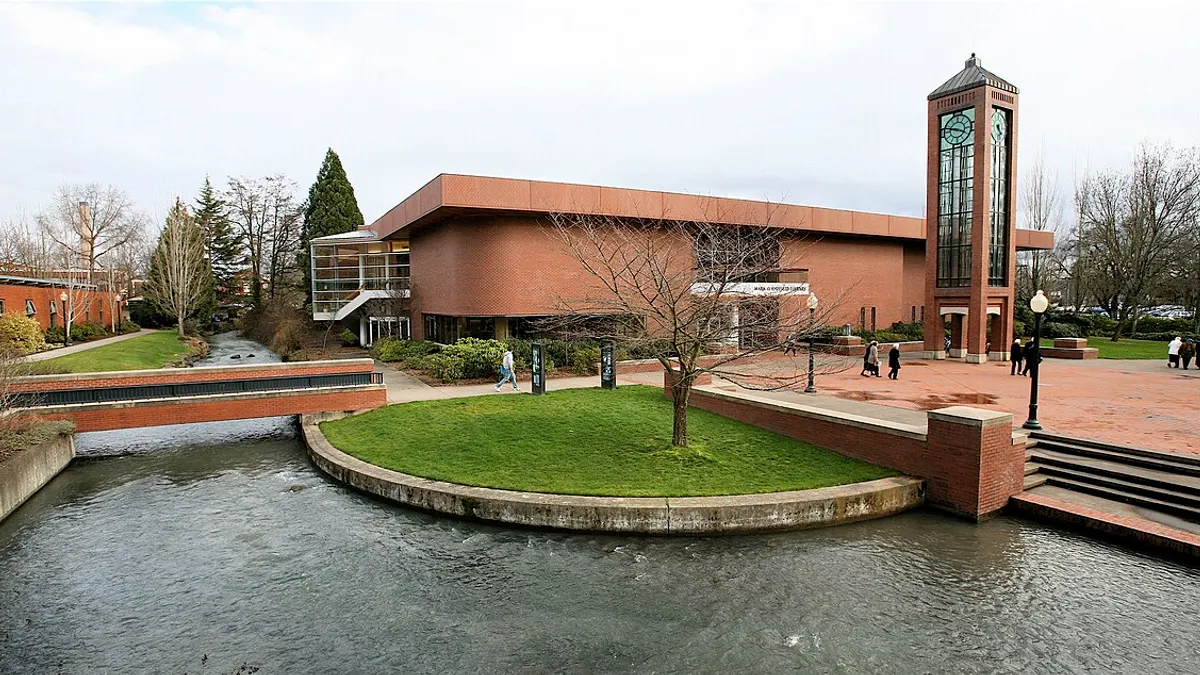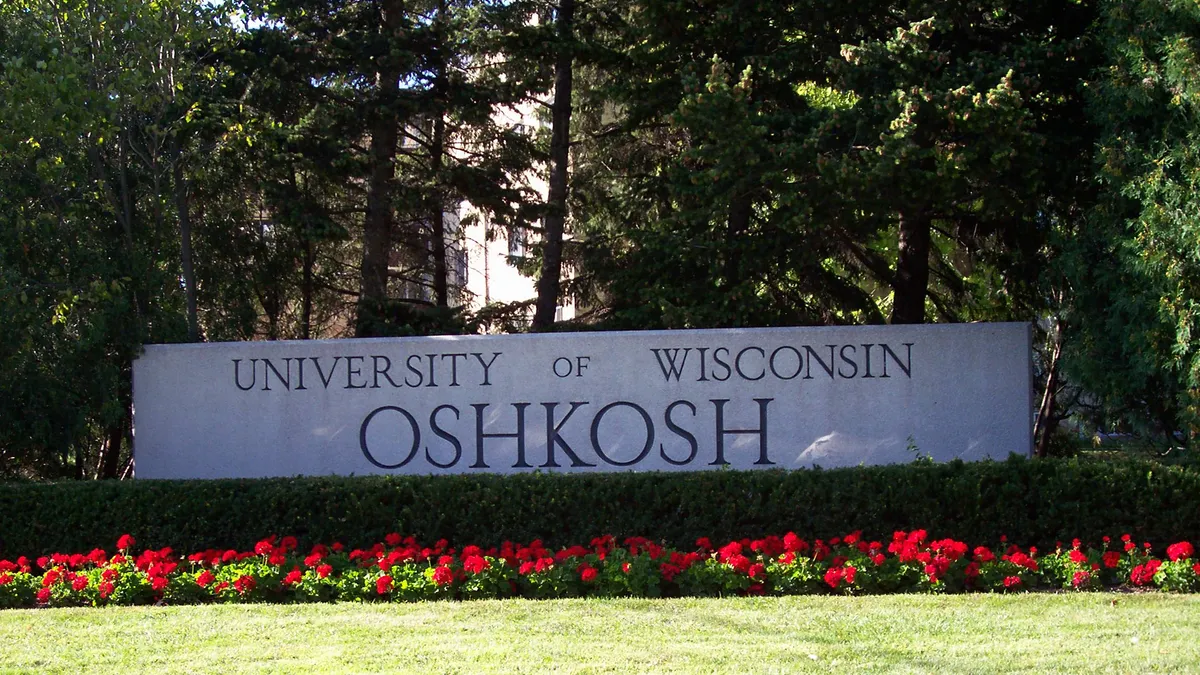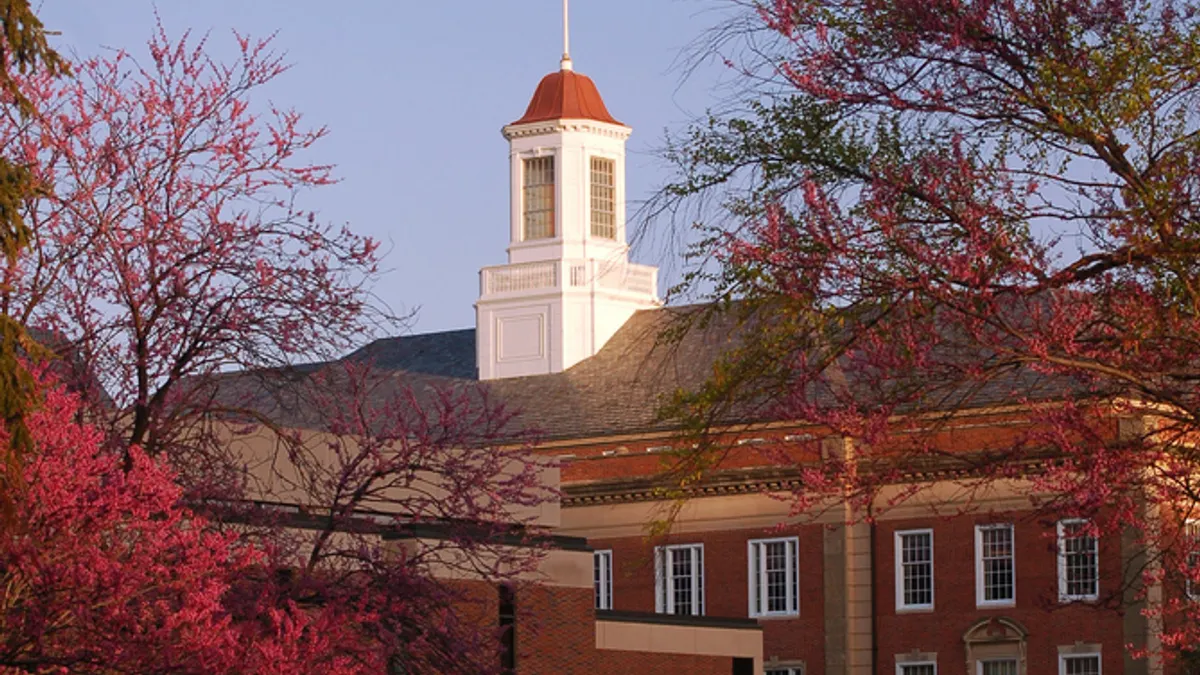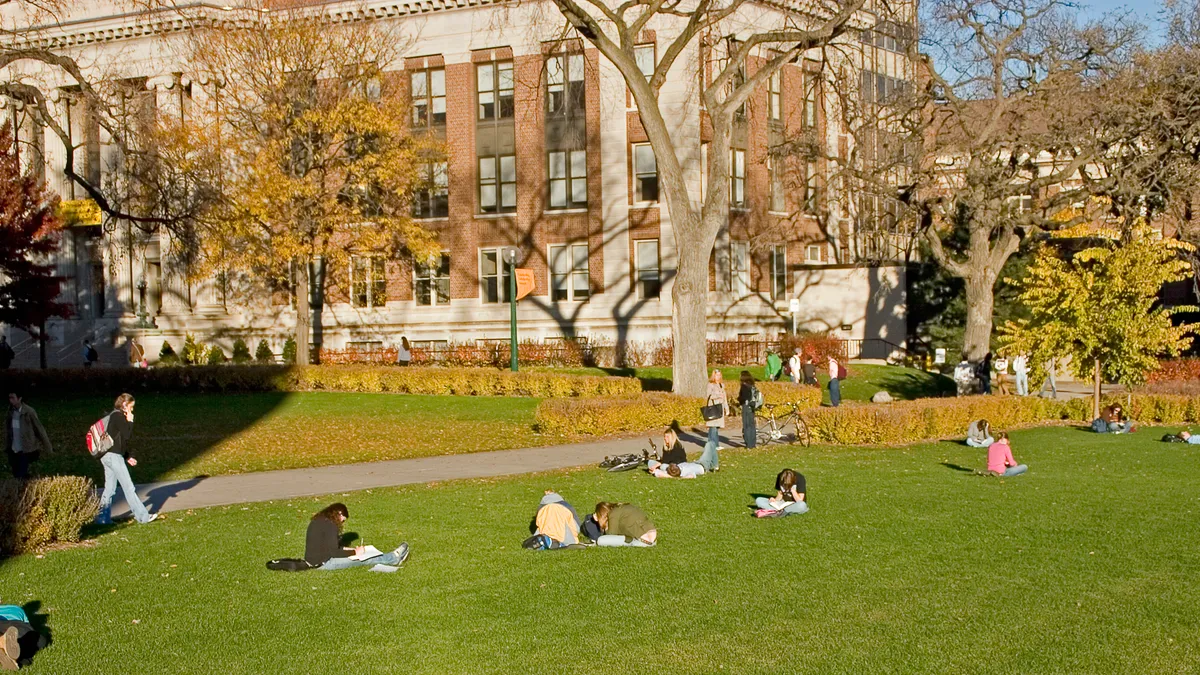When a private college falls into severe financial distress, it often pursues a merger or closure. Birmingham-Southern College is going a different route.
The liberal arts college in Birmingham, Alabama, fell into financial turmoil more than a decade ago. And this past spring, the college was so strapped for cash that it was uncertain if it could stay open for more than a few months.
But the private college looked for a government bailout, pursuing city, county, state and federal dollars that could help keep it afloat. In total, the college was looking for more than $37 million.
A potential lifeline came in June, when Gov. Kay Ivey signed a bill that makes institutions like Birmingham-Southern eligible for a state loan. The state legislature funded the new program at $30 million.
It’s possible that a loan from the government could save Birmingham-Southern College. But it’s unclear so far what the institution's next steps will be if it receives the loan, and exactly how it will address the issues that led to its years of financial hardship.
As higher education faces increasing pressures, it’s possible even more institutions will pursue similar arrangements.
“You can lead the horse to the trough and hope he drinks,” said Brian Mitchell, former president of Bucknell University and now a higher education consultant. “But how deep is the water going to be if any number of colleges and universities begin to face this situation in a given state?”
What are the terms of the loan program?
Much about the potential loan for Birmingham-Southern remains unknown — such as the interest rate, amount and lifetime, as well as whether the college will even be granted the funding at all.
To apply, institutions must have operated in Alabama for at least 50 years, submit a financial restructuring plan and pledge assets as collateral, among other conditions. Terms of the loan, such as the level of funding and interest rate, are left up to the state treasurer.
Birmingham-Southern College did not respond to questions about how it would raise funds to repay a loan and what actions it took to stave off financial crises before this year.
“Birmingham-Southern College is grateful to our state leaders who worked so hard to create this loan program, and we appreciate the strong support it received from both houses of the Alabama Legislature,” a spokesperson for the college said via email in September. “We have submitted our application and are awaiting further information.”
The college is still working on the details of the loan with the state, a spokeperson said in an email Tuesday. It’s also discussing a grant with the city of Birmingham and plans to hold discussions with Jefferson County officials once it locks in those funds
How did Birmingham-Southern get a bailout?
In 2010, some of Birmingham-Southern’s problems first came into the public eye. The college for years had been mismanaging its financial aid, adding Pell Grants to award packages without reducing the college’s own contribution. That mistake cost the institution $5 million per year, the college’s president said at the time.
The institution’s endowment had also been withering over time as the college used it to cover operating expenses and undertook a new building project starting in the mid-2000s. In June 2010, Birmingham-Southern announced that it would reduce its budget by 20%.
However, the college’s financial troubles persisted. Enrollment fell from more than 1,500 that year to about 1,100 in 2021.
This past December, officials said that while Birmingham-Southern leaders have managed to fund the year-to-year operations of the college, the college would not be able to operate long term without a larger endowment.
Today, the college has only about 750 students. And tax records show Birmingham-Southern has run deficits since fiscal 2018.
However, Birmingham-Southern announced in December that it had secured commitments of $45 million from private donors for an endowment campaign, in the hopes of raising $200 million by May 2026. It was pursuing the government bailout to help fund operations while it finished the fundraiser.
A spokesperson for Ivey had originally said the state had “no plans” to use taxpayer money to bail out a private college. However, after both chambers of the legislature passed a bill that would do exactly that, she signed it after sending it back to the legislature for amendment, including a requirement for a financial restructuring plan.
“I have previously said that taxpayers' public funds should not be used to bail out a private college, and I remain concerned about the wisdom and propriety of this program,” she wrote in her June 1 memo to the state House and Senate.
What hazards are ahead?
A private college taking a public loan, to the tune of millions of dollars, is certainly an uncommon way to deal with financial issues.
“I haven’t heard of another state doing this because that puts state tax dollars at risk,” said Robert Kelchen, a higher education professor at University of Tennessee, Knoxville. There have been instances of colleges getting low-interest loans from the U.S. Department of Agriculture, he said, but that is federal money. Most colleges look to either merge or prepare for an orderly closure.
If Birmingham-Southern does close, Kelchen asked, how would the state recoup its funds?
Mitchell, who is also president and managing principal of educational consulting firm Academic Innovators, said that for any college in a similar situation, the first priority should be making sure it can pay back any loan it receives from the state.
“You have to be strategic and make sure financially that the numbers work, which means you need good accountants,” Mitchell said. “You need full transparency to make sure that the citizens and the politicians all fully understand what you’re trying to do and have developed a reasonable policy to execute.”
In the meantime, boards of trustees should be familiarizing themselves with the issues at hand and continuing to ask whether their institution is viable.
Governing boards are “not doing their job,” he said. “There should be two or three or four central issues that are on the horizon that are potentially existential threats to colleges and universities. That’s where boards should look. That’s where boards should spend their time.”
Birmingham-Southern, meanwhile, could face other challenges coming down the pike.
The college has not been sanctioned by its accreditor, the Southern Association on Colleges and Schools Commission on Colleges. But the accreditor has requested information regarding Birmingham-Southern’s finances to investigate any potential breach of standards, said Janea Johnson, a spokesperson for SACSCOC. Any loss of accreditation, however, would take years.
“We don’t take removing institutions from membership lightly,” Johnson said.
And even if the college has a strong plan to turn around finances, it’s possible that the news and discussion of a potential closure has scared off prospective students, whose tuition the institution so desperately needs, said Kelchen.
“Does this just kick the can down the road?” he asked.

